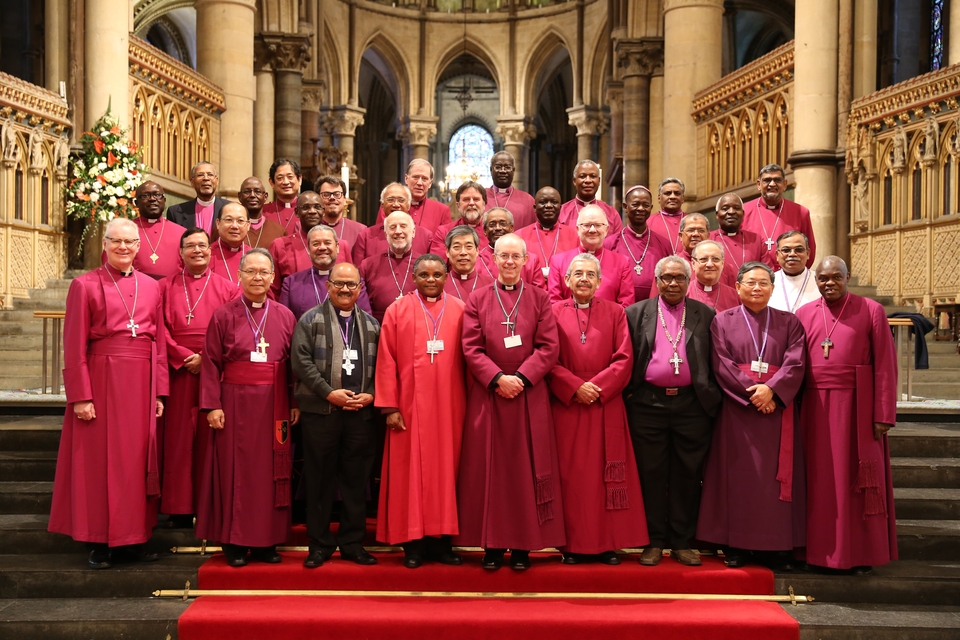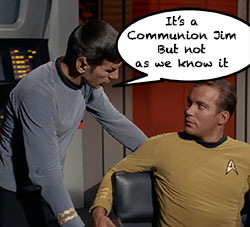At the recent Primate’s gathering in Canterbury, the Episcopal Church was criticized for its moves towards inclusion and equality for LGBT persons and some “sanctions” (or “consequences” as the Archbishop named them) were announced. It isn’t clear whether or not the Primates statements have any binding force on the institution known as the Anglican Communion. As others have noted, this seems a back door drive to impose the structures of the failed Anglican Covenant’s section 4. Bosco Peters is a priest from New Zealand who maintains the blog/website, Liturgy offers some clear thinking on this question, and though much of what he has to say comes from his own context in New Zealand, much of it is applicable in the Episcopal Church as well. His writing also reminds us that the Communion is much broader than those Primates whose primary issue is the inclusion of LGBT persons as well as reminding us that this is not the only issue that divides us. Below is an excerpt, but do check out the whole thing.
Thereafter the communiqué states: [we formally require] “that for a period of three years TEC no longer represent us on ecumenical and interfaith bodies, should not be appointed or elected to an internal standing committee and that while participating in the internal bodies of the Anglican Communion, they will not take part in decision making on any issues pertaining to doctrine or polity.”
This section deserves reflection. Who is the “us” that the Primates see TEC as “representing on ecumenical and interfaith bodies”? Do they see TEC representing the Primates on such bodies? Surely not! Or are the Primates here taking it upon themselves to speak for the whole Anglican Communion – that by “us” here they mean “Anglicanism”? If so, when and where, exactly, do they think they have received this mandate? Is a convenient crypto-papal ecclesiology at work here?
Furthermore, although I would be extremely surprised if TEC uses a vote in the next three years on international Anglican bodies, that will be out of respect for the Primates, rather than automatically – the Primates do not control these bodies. I would understand that not even the Primate of TEC can require this. Nor do the Primates control the ecumenical and interfaith bodies they mention. How did the Primates come to so patently overreach themselves?
Anglican bishops can sometimes (often?) sound like their Roman Catholic homonyms (or even like the pope!), giving the impression that they, rather than synods, govern the church. Primates, with double the plus-power of bishops, can sound even more so. But Primates are primus inter pares, first among equals on the bench of bishops. The primate of ACANZP is as subject to the church’s synodical governance as anyone else.
Peters then offers seven important reminders about the nature of a Communion of independent churches and the limits of episcopal power in a synodical governance structure such as most anglican/episcopal churches have. Two that are especially worth considering for us in the Episcopal Church are numbers 2 and 3.
Reminder 2 The Primatial team of ACANZP can in no way impose their decision, or any decisions made at Primates’ Meetings (or of meetings of Primates) on our church. They (as anyone) can attempt to persuade, but our church is governed by synodical processes, not by primates, nor by bishops.
Reminder 3 The Episcopal Church is and remains a member of the Anglican Communion. I would posit that in many ways ACANZP is more in communion with TEC than it is with other parts of the Anglican Communion. All bishops in ACANZP can preside, preach, and share in ordinations in TEC, while some of our bishops, because of their gender, cannot function as bishops in, for example Central Africa, Melanesia, Nigeria, Papua New Guinea, South East Asia, our neighbouring Sydney archdiocese, and even, until recently, in the mother Church of England itself. I am not aware that all Primates gathered at communion together last week.



